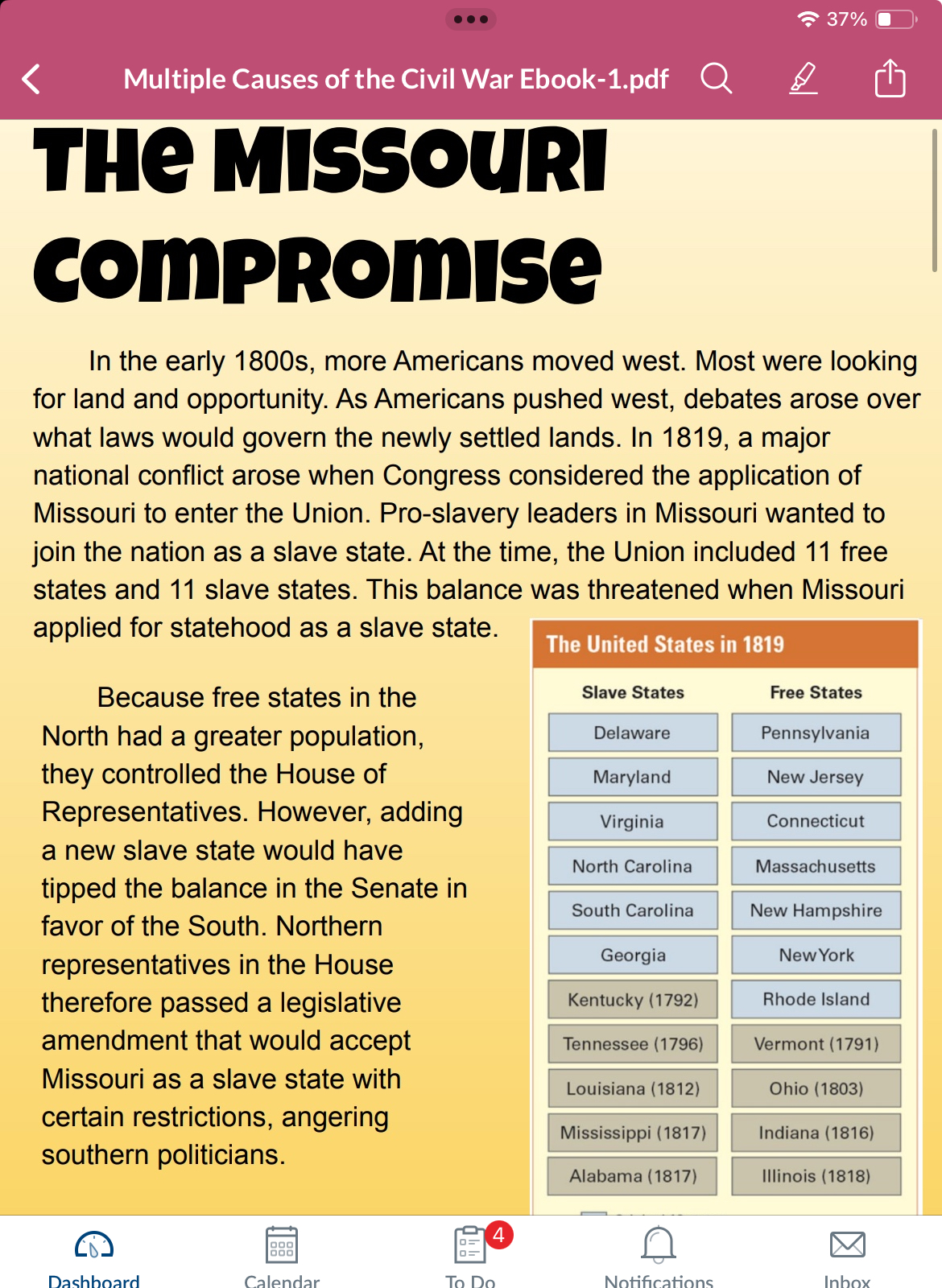What was the Missouri Compromise and why was it significant?

Understand the Problem
The question discusses the Missouri Compromise, which was a significant event in American history concerning the balance of free and slave states in the early 1800s. It highlights the conflicts arising from Missouri's application to enter the Union as a slave state and the resulting legislative actions to manage the balance of power in Congress.
Answer
Balanced slave and free states, prohibiting slavery north of 36° 30'.
The Missouri Compromise of 1820 admitted Missouri as a slave state and Maine as a free state, maintained a balance between slave and free states, and prohibited slavery north of the 36° 30' latitude line in the Louisiana Territory.
Answer for screen readers
The Missouri Compromise of 1820 admitted Missouri as a slave state and Maine as a free state, maintained a balance between slave and free states, and prohibited slavery north of the 36° 30' latitude line in the Louisiana Territory.
More Information
The Missouri Compromise was significant because it attempted to balance power between slaveholding and free states, delaying sectional conflict and the eventual Civil War.
Tips
A common mistake is assuming the compromise resolved the issue of slavery permanently. It was a temporary measure.
Sources
- Missouri Compromise (1820) | National Archives - archives.gov
- Missouri Compromise: Date, Definition & 1820 ‑ HISTORY - history.com
- Missouri Compromise | Summary, Map, & Significance - Britannica - britannica.com
AI-generated content may contain errors. Please verify critical information